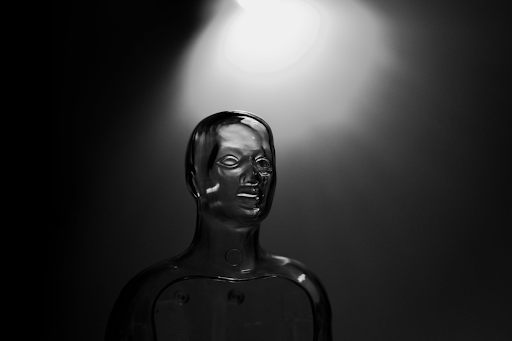We fear A.I. because we fear ourselves

Courtesy of Pexels
June 1, 2022
We fear being replaced by the faster, stronger and smarter thing because we were once the shiny new thing. Like with the millionth model of the new iPhone, nature lined up outside the human store and bought the new model.
However, while our hardware is the newest, greatest thing after millions of years of development, our software is actually pretty outdated, and we know it.
Discussing artificial intelligence or A.I. will likely evoke images of a future where machines have decided to eliminate humankind. Or perhaps, people imagine modern examples of drones utilizing facial recognition software, confirming their targets before a missile strike.
Fear of A.I. has been one of the most pervasive topics for decades, especially in works of fiction, tracing its roots back to our first interactions with automation, the idea that machines can replace humanity or “Man versus Machine,” as they say. Any time we see something new, we fear it.
When Henry Ford started selling the Model T we asked, “What will happen to those who build carriages and sell horses?” When we automated the car factories we asked, “What will happen to those who build cars?”
When machines become too intelligent, what will happen to us?
These are fair questions, as a matter of fact these questions are so fair that we have entire institutions dedicated to them.
The Future of Life Institute is one of those institutes that concerns itself with the coexistence of A.I. and humanity. The institute is concerned primarily with A.I that is programmed to perform a task, and eliminating humanity in the process.
Where does this fear of elimination come from? Why do humans carry with them a species-wide inferiority complex?
The answer is simple. Biology.
Just one example of this is our adrenal response, the nervous feeling you get when you are about to do something scary or important, is from a time when being too calm in your environment meant death. In a world where an animal isn’t waiting to pounce around every corner, we don’t necessarily need this response anymore, but it still gets triggered when we encounter something new.
What happened when Homosapiens encountered Neanderthals?
Well, you don’t see any more Neanderthals around, do you? Although in Ellensburg, that isn’t always true.
We fear change because we fear ourselves. We fear A.I. will replace the old worn-out humans because it’s what we would do and we can’t imagine anything taking a higher moral position than ourselves. When we fear something we try to stop it.
According to the Future of Life Institute, A.I. Research is not something to halt because we fear it, but rather we should dedicate greater resources to its study so that we can better harness it.
A.I. isn’t here to get rid of us, it’s here to help us. Don’t think “Terminator,” think “WALL-E.”
Imagine a world where all the boring tasks are automated by A.I. and we can commit all our resources to creating new artforms or exploring the world.
Imagine a future when negotiations between nations are done without heated argument or inflated ego getting in the way. I’m looking at you, Putin.
Don’t be a Neanderthal. Embrace A.I., it’s the way of the future.

